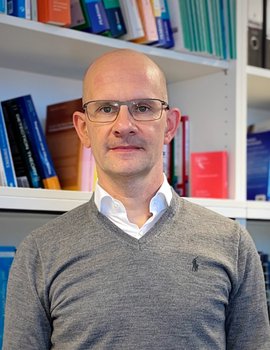Title
Listening and meta-listening: How do direct and indirect paths shape auditory perception?
Amidst a flurry of methodological advances in neuroimaging and data analysis, we have made somewhat limited progress in explaining individual (i.e., trait-like) and momentary (i.e., state-like) differences in a listener’s sensations and perceptions, that is, in their behavioural outcome.
In the present talk, I will present recent evidence on two broadly distinct ways of how brain traits and states could shape the outcome of auditory perception: “direct” changes in sensory encoding specifically are contrasted with “indirect”, modulatory or meta-cognitive changes along an auditory-perception cascade.
I will argue that more in-depth consideration of the latter, indirect class of neural processes will help us explain better audition as a whole, with implications for ageing, hearing loss, and aberrant perception.
Biography
Jonas Obleser researches processes of perception and listening using methods from the cognitive neurosciences. After studying and obtaining his doctorate in psychology at the University of Konstanz, he worked at the Institute of Cognitive Neuroscience, University College London, and at the Max Planck Institute in Leipzig, where he established the research group "Auditory Cognition" (http://auditorycognition.com). Since 2016, he has held the Chair of Physiological Psychology at the University of Lübeck, Germany. His current research interest centers on the dynamic changes of brain activity in perception and cognition, and how these processes interact during listening.
